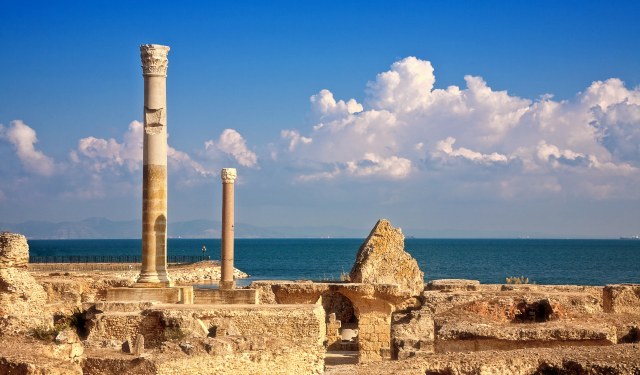Blue Economy in Tunisia: development opportunities – Tunisia, located at the center of the Mediterranean’s southern shore, has a 1300-kilometer coastline and an entire population who heavily rely on coastal and marine resources for their livelihoods. The blue economy, which focuses on sustainable use of maritime resources for economic growth and healthy ecosystems, presents a chance for sustainable development and wealth creation for Tunisia, particularly in the aftermath of COVID-19. To increase the economic contribution of Tunisia’s coastal and marine resources, the Tunisian government, in partnership with the World Bank, has been identifying opportunities for the development of the blue economy since 2020. This process has been primarily based on expert analysis using recent data and statistics (here the report) , and included consultation with various actors involved in managing Tunisia’s coast and sea. The goal of this analysis was to inventory existing resources and establish a national strategy for the blue economy. This has helped define a strategic vision, identifying key traditional and emerging activities that will play a significant role in the development of a blue economy in Tunisia. Additionally, sustained activities to protect marine and coastal ecosystems will be necessary.
Vision, Goals, and Strategic Pillars of the Blue Economy in Tunisia
The blue economy in Tunisia aims to create wealth and jobs while preserving the environmental balance of the natural capital and promoting social inclusion of local populations. It promotes economic growth, preservation or improvement of livelihoods and environmental sustainability of sea and coastal areas. Additionally, it will provide the best conditions for greater resilience and adaptation to climate change.
The vision of the blue economy in Tunisia is to respond to three major challenges:
- creation of wealth with socio-economic benefits for current and future generations;
- preservation of natural capital through the protection and restoration of biological diversity and marine ecosystems;
- adaptation and resilience to the growing impacts of climate change.
To achieve this vision, three strategic objectives have been identified:
- promotion of the growth of traditional and new maritime economic activities,
- social inclusion and gender equality through the creation of sustainable jobs, and the preservation and improvement of livelihoods,
- sustainability of natural resources and ecosystem services.
Six strategic axes have been identified to achieve these objectives:
- set up institutional governance involving all stakeholders;
- ensure the coordination and coherence of public policies, strategies, and sectoral plans and programs;
- promote resources and appropriate and innovative financing mechanisms for programs and projects of the blue economy (e.g., public and private investments, public-private partnerships, issuance of Blue Bonds);
- promote job creation, poverty alleviation, gender inclusion and involvement of vulnerable groups;
- develop knowledge of marine and coastal capital, both natural and cultural;
- increase resilience to climate change through the strengthening of mitigation and adaptation measures.
The development of this vision and its objectives will require an institutional framework through which stakeholders can consult and have input into government decision-making. The key actors in this framework are the General Secretariat for Maritime Affairs, the Ministry of Environment and the Ministry of Economy and Planning. All of these actors are members of the Ministerial Commission for Maritime Affairs.
The blue economy in Tunisia will require coordination at the national, regional, and local level, involving different sectors. The coordination mechanism must be intersectoral, cross-cutting, and both horizontal and vertical. An integrated approach anchored in the strategy of the Ministerial Commission for Maritime Affairs (CMAM) will be beneficial. The ultimate goal of this coordination is to ensure the environmental sustainability of the natural capital on which socioeconomic development relies.
Blue Economy in Tunisia: development opportunities








